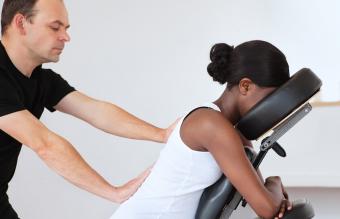
Many pregnant people experience dizziness during the third trimester of pregnancy. At this stage of your journey, you're already dealing with a big belly and all of the challenges that can come with it - lack of sleep, difficulty moving, and general discomfort. A sudden bout of lightheadedness can feel scary and is the last thing you need as you count the weeks until you give birth. So should you be concerned when dizziness hits? What does it mean?
Rest assured, third-trimester dizziness is a common complaint and can have many causes. Thankfully, many of these issues can be easily managed with rest, food, and water.
What Causes Dizziness During the Third Trimester?
Pregnancy contributes to a number of changes in your body, aside from the obvious expansion of your belly. Several different factors can contribute to lightheadedness for a pregnant person in their third trimester.
Cardiovascular System Changes
Your cardiovascular system is made up of your heart and the blood vessels (veins and arteries) that carry that blood throughout your body from head to toe. When you're pregnant, the blood travels from head to baby to toe. As a result, your cardiovascular system starts to work a lot harder when you're expecting. The amount of blood in your veins and arteries increases by an average of 45% to help grow your developing baby, and your heart pumps faster to compensate.
To make room for all this extra volume, your blood vessels release a hormone called relaxin. This hormone does exactly what it sounds like: it relaxes your veins and arteries. This relaxing effect can sometimes happen out of sync with the increase in blood, which can lower your blood pressure and make you feel dizzy.
There isn't necessarily a fix for this cause of dizziness during late pregnancy. The cardiovascular changes that are happening are necessary, so you don't want to stop them from occurring. But simply knowing about these changes might help you to become more aware of your surroundings and move more slowly as your belly grows so that if you do become dizzy, the lightheadedness doesn't result in a fall.
Hunger or Thirst
If you are not eating enough, this could cause your blood sugar to drop, and you may become lightheaded or dizzy. This may also happen if you don't drink enough and become dehydrated. You will need to drink at least six to eight (8 oz) glasses of water per day to stay hydrated.
Some healthcare providers recommend eating smaller meals more frequently rather than eating three large meals. You may also want to consider keeping a few healthy snacks and a water bottle with you at all times, just in case you begin to feel lightheaded.
Hyperemesis Gravidarum
If these words sound like some kind of storybook villain to you, you're not far off. Hyperemesis gravidarum describes when a pregnant person feels extreme nauseousness constantly. Hyperemesis gravidarum differs from morning sickness in that it doesn't ease up after the first trimester and it's severe enough that it can stop you from taking in the nutrients you need.
If you are growing a baby but are not able to drink or eat very much, you can easily get dehydrated. Your blood pressure can fall, causing weakness, dizziness, and fainting. Cases can be mild enough to manage at home, while the most severe cases sometimes require hospitalization for rehydration. Hyperemesis gravidarum only occurs in 0.5-2% of pregnant women, though, so the odds are in your favor!
Anemia
Pregnant women who suffer from anemia often feel lightheaded because they have fewer red blood cells to carry oxygen to the brain and other organs. Anemia can happen to anyone but is more common in pregnant women. It is advised that you eat iron-rich food and take your prenatal vitamins each day. If the prenatal vitamins aren't helping, your doctor may recommend an additional iron supplement.
Exercise
Some pregnant women find that even moderate exercise can cause them to feel lightheaded. While physical fitness is important, be careful not to overstress your body during the third trimester. Choose moderate activities, start your workout slowly, and take a break if you begin to feel dizzy.
Getting Overheated
During the third trimester, many pregnant people find that they have a decreased tolerance for heat. Being in a hot room or even taking a hot shower causes them to feel lightheaded. Dressing in layers so you can remove clothing if you start to feel warm is the best way to combat this problem. You may also want to invest in a few extra fans to keep the rooms in your home as cool as possible.
Lying on Your Back
You may want to avoid lying on your back during your second and third trimesters of pregnancy. The weight of the uterus from your growing baby can rest on a large vein that carries blood from your lower body back to your heart. When your blood flow is cut off by the weight of your baby, you can become nauseous, lightheaded, suddenly warm, and you may even feel like you're going to faint.
These symptoms will usually fix themselves and you will feel better once you turn on your side. If you find it difficult to stay lying on your side, you may want to invest in a pregnancy pillow or a body pillow. A pillow placed between your knees and/or behind you may make this position feel more comfortable.
Standing Up Too Fast
After you've been sitting for a long time, blood starts to pool in your lower extremities. If you move about slowly, this will help the blood vessels pump blood back to the heart; however, if you get up too fast or move suddenly, you may become lightheaded or dizzy. Avoiding sudden movements is a simple remedy for this problem, although wearing support stockings may also be helpful for circulation.
How to Prevent Fainting in the Third Trimester
There are several reasons why you may experience fainting during the third trimester of pregnancy. The most common reasons this may include standing for long periods and getting up too quickly. Straining during bowel movements and any of the causes of lightheadedness mentioned earlier may be a cause for fainting as well.
If you begin to feel faint or dizzy, try these options:
-
Sit or lie down and lower your head.
- Take in deep, steady breaths.
- Loosen any tight clothing you may be wearing.
- Eat a snack.
- Drink a big glass of water (at least 8oz).
- Get air on your face, either with a fan or by opening windows.
In general, you also should remember to avoid getting up quickly, getting overheated, lying on your back, or standing in one position for a long time. Carry a water bottle with you everywhere and try to eat small frequent meals. Always carry an emergency granola bar or another snack when you're out and about.
When to Call Your Healthcare Provider
Typically, dizziness during the third trimester of pregnancy is a normal symptom that, alone, doesn't merit cause for concern. However, you should contact your healthcare provider right away if your lightheadedness is accompanied by any of the following symptoms:
- Blurred vision
- Chest pains
- Difficulty breathing
- Fainting
- Heart palpitations
- Pain in abdomen
- Severe headaches
- Vaginal bleeding
If you have fallen due to lightheadedness or fainting, you will need to contact your provider immediately or go to the hospital. While your body, the amniotic fluid, and the placenta keep your baby fairly well protected, an examination is still necessary to rule out any possible complications.
If you feel faint in your third trimester, remember that you are in good company. Many people experience this symptom later in pregnancy. If you feel dizzy, try the tips above and see if they help. However, if you have any concerns about your symptoms, you shouldn't hesitate to give your doctor or midwife a call.







